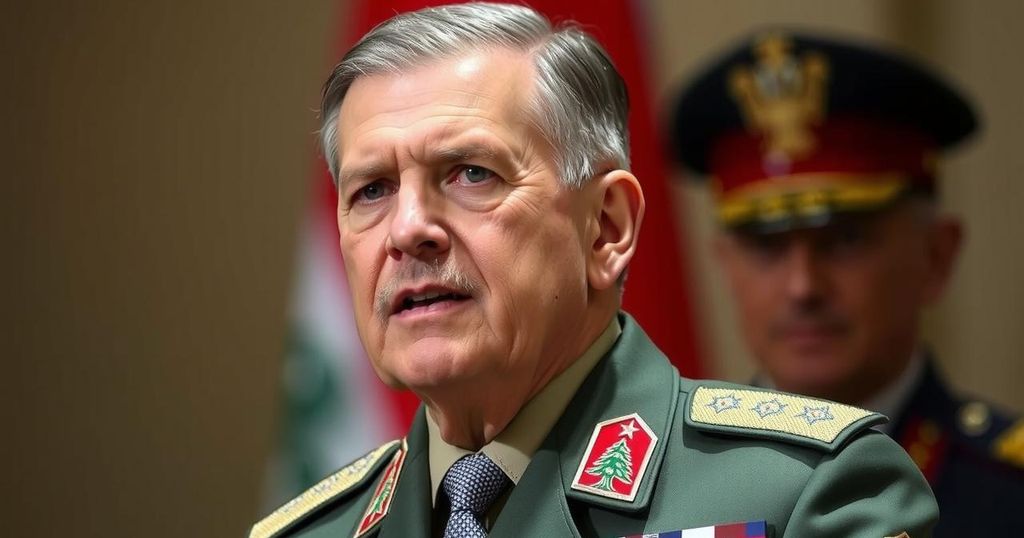Joseph Aoun has been elected as Lebanon’s president, concluding a two-year power vacuum. His candidacy, supported by various political factions and international allies, followed a ceasefire after hostilities involving Israel and Hezbollah. Aoun’s election was marked by a first round of voting that fell short of the required majority, but he succeeded in the second round, prompting widespread celebrations across Lebanon.
Joseph Aoun has been elected as the new President of Lebanon by the parliament, effectively bringing an end to a prolonged power vacuum that has persisted for over two years. His election received support from various political factions, as well as endorsements from international powers, including the United States, France, and Saudi Arabia. The election follows a ceasefire agreement that concluded hostilities between Israel and Hezbollah, further contributing to Aoun’s position in Lebanese politics.
Aoun, aged 60, has led the Lebanese Army since 2017, guiding the institution through multiple crises, including a significant economic downturn and the catastrophic Beirut port explosion in 2020. The presidency in Lebanon is primarily a ceremonial role, traditionally held by a Christian leader due to the country’s sectarian power-sharing arrangement. During the election process, Aoun required a two-thirds majority in the 128-seat parliament, and despite an initially lower vote count in the first round, he successfully garnered the necessary support in the second round to secure his presidency.
The electoral proceedings witnessed a series of challenges, particularly characterized by the withdrawal of a rival candidate backed by Hezbollah, which paved the way for Aoun’s eventual success. The proceedings also uncovered divisions within parliament, as several lawmakers opted for blank ballots or invalidated their votes during the pivotal rounds. Following the formal announcement of his presidency, celebrations erupted across Lebanon, signaling a collective aspiration for stability amid previous political gridlock.
The election of Joseph Aoun as Lebanon’s president marks a significant event in the country’s political landscape, effectively concluding an extended period without a functioning government since the last parliamentary elections in May 2022. This transition follows mounting pressures from both internal factions and external allies aimed at promoting stability in a nation that has grappled with various crises, including economic turmoil and conflicts in the region. The contextual backdrop includes a recent ceasefire between Israel and Hezbollah, critically altering the dynamics within Lebanese politics and military engagements.
In summary, Joseph Aoun’s election as President of Lebanon not only fills a long-standing political void but also reflects broader regional dynamics and international support for stability within the country. His military experience and leadership tenure provide a foundation for addressing Lebanon’s multifaceted challenges, with hopes for a more effective and functional governance structure instilled in the electorate as evident from public celebrations following the announcement of his presidency.
Original Source: www.bbc.com






